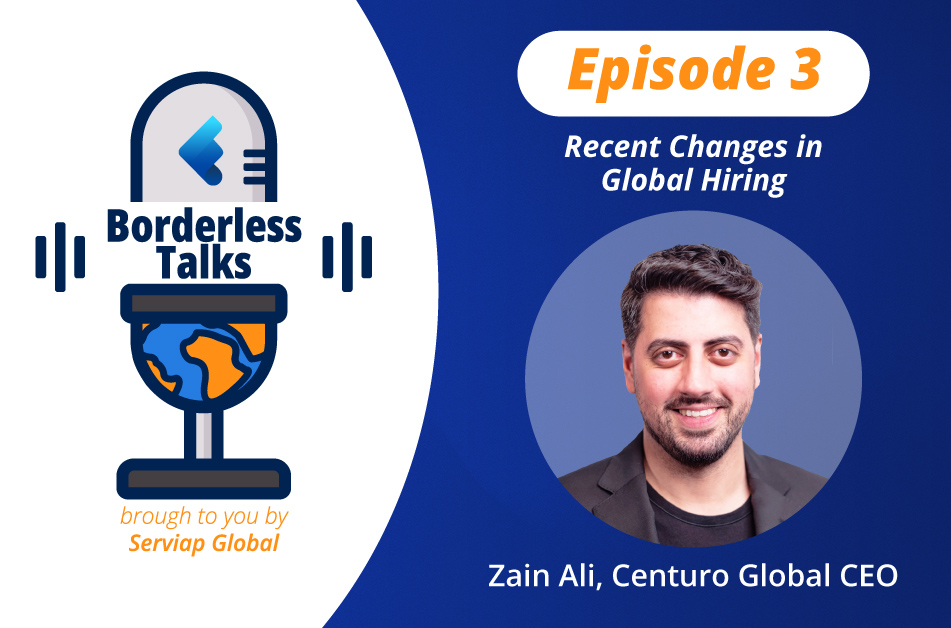Table of Contents
The growth of remote working over recent years has seen an increasing number of companies consider establishing a distributed workforce. But being unsure how to pay international employees can be a stumbling block preventing some from taking the leap.
The benefits of global hiring include access to high-skilled talent at competitive prices, increased diversity, and greater insight into new markets. But before tapping into those benefits, companies need to understand how to pay international employees.
A number of options exist, including working with an employer of record (EOR), setting up a foreign entity, hiring independent international contractors, and payroll outsourcing.
Each offers its own benefits and drawbacks, and the best choice will come down to factors including the type of role being hired for, the length of time that role will be needed, where the person hired is based, the level of liability the company is happy to assume, and the future expansion plans of the company.
If you are interested in global hiring but have been held back by not knowing how to pay international employees, contact us.
How to pay international employees
For anyone wondering how to pay international employees, some of the most popular options are highlighted below:
1) Through an EOR
An EOR is a third party that helps with international recruitment by hiring overseas professionals on the behalf of other companies. An EOR is generally responsible for sourcing, recruiting, and managing the administration of professionals hired for other companies, including handling payroll, calculating taxes, paying benefits, and overseeing onboarding and eventual offboarding.


An EOR will have an established recruitment network and in-depth knowledge of local job markets, so that strong candidates for roles can be found quickly. It also takes responsibility for ensuring compliance with local regulations, assuming liability for non-compliance in the process, thereby eliminating the risks of unexpected legal problems or possible financial penalties.
Agreeing with the EOR on the number of workers it will manage establishes how the international employees will be compensated, from the amounts to the regularity of payments. The EOR, in turn, will charge a monthly fee for each person hired.
Working with an employer of record is an increasingly popular option and arguably the best choice for many companies starting their international expansion projects. Because the EOR can onboard professionals in a matter of weeks and provide guidance and insights that can be invaluable to the hiring company.
2) Setting up a legal entity
When a company intends to expand into other markets permanently, one of the best options for hiring internationally is to establish a legal entity in the country. Of course, this will demand hiring professionals who understand how to pay international employees based in that location.
In addition to a long-term international expansion project, setting up a local entity can also be a strong option if a large number of employees will be hired on a long-term basis, as this will better justify the costs involved in hiring HR and accounting professionals to oversee them.
However, companies that see opening an entity as an option should consider that each territory has specific rules, such as a minimum number of workers, business licenses, bank accounts, and payment of additional taxes, as well as compliance with labor regulations, not to mention all the expenses involved in working from an office.
An entity can be a simple representative office, but this modality does not allow hiring personnel that generates income for the company; it can also be a branch office or a foreign subsidiary. Any of the three options represents a process that can be time-consuming and costly, resources that companies can take advantage of in the growth of the business in other territories.
3) As independent international contractors
An international independent contractor is a professional or group of specialists who provide services for a project or a specific period. They often function as full-time in-house employees, but from a legal point of view, they work for their own company, which provides services to the employer. Companies unsure of how to pay international employees as independent contractors will often find that the same providers offering EOR services are able to help them.
As freelancers and temporary workers, these employees set their schedules according to the various projects they may have simultaneously, so monitoring their performance can be more complicated. In addition, they often have a different level of commitment than an in-house worker.
Although international independent contractors can seem costly when breaking down their salaries to a daily or weekly basis, hiring them can also be cost-effective. Because the time they are employed for will be strictly limited, while the employer also saves on the likes of paid time off, pension contributions, and other costs that are not applied to contractors.
While there are many advantages to hiring independent contractors, companies should thoroughly review local regulations regarding hiring temporary staff and correctly classify these professionals to avoid the legal consequences of misclassification.
4) Via payroll outsourcing
Another solution to the problem of how to pay international employees is through payroll outsourcing. This forms part of the service provided by an EOR, but can also be a standalone service.
Note that, if you are considering using an EOR for payroll outsourcing, is is worth also looking for providers offering international professional employer organization (international PEO) services, which is similar but slightly different to EOR.
SEE ALSO: Call center outsourcing: 5 great destinations to consider
Payroll outsourcing involves the provider handling all elements of payroll. Those include payroll setup, method of payment, withholding of all applicable income and payroll taxes, plus administration of employee deductions and year-end tax returns.
As well as being offered by EORs, payroll outsourcing can be done by dedicated accounting firms, or payroll specialists sometimes known as a payroll service bureau or payroll outsourcing provider. In most cases, these providers will also offer “payroll co-sourcing”, whereby some payroll processes are performed in-house while others are outsourced.


Considerations on how to pay international employees
Before choosing the path that best suits your needs in terms of how to pay international employees, you need to keep in mind that, to avoid any fines and even termination of operations, you must be up to date with the labor and tax laws of the territory where these staff members are based.
For example, a company’s continued presence in a territory can lead to it obtaining “permanent establishment” status, meaning it will be liable to pay corporate taxes in that country.
The specifics of this tax term vary in each territory but are generally related to whether the business has a recurring place of business, generates income in this country, the number of employees it has, and the length of time the firm has been in business, among other indicators.
Also, the exchange rate for paying international employees can be unfavorable or beneficial for companies, especially when local currencies are unstable. Some countries permit payment in foreign currencies, but others do not.
In addition, some cultural differences in payroll can affect how the overseas staff are paid, such as in countries that divide their annual payments into 13 and not 12, as most do. The thirteenth month is paid as a bonus, sometimes divided in two parts.
Also, according to local regulations, the frequency with which international employees will be paid must be determined. While many companies pay their local workers monthly, weekly or even bi-weekly payments may be preferable when considering how to pay international employees.
Serviap Global helps companies with how to pay international employees as an EOR
At Serviap Global, we help our clients figure out how to pay for international employees with our international PEO / EOR services in over 100 countries worldwide.
We also offer global talent acquisition to help companies that rely on us find candidates to hire directly and even as independent international contractors.
We are a company with roots in Mexico, where we started operating in 2010 before expanding throughout Latin America and then the rest of the world. Our vision is global, but we are always committed to excellent service and the individualized approach of collaborating with a local supplier.
Contact us to learn how we can help you hire and understand how to pay international employees.
If you liked this article on how to pay international employees, check out the rest of our coverage on global expansion.






























